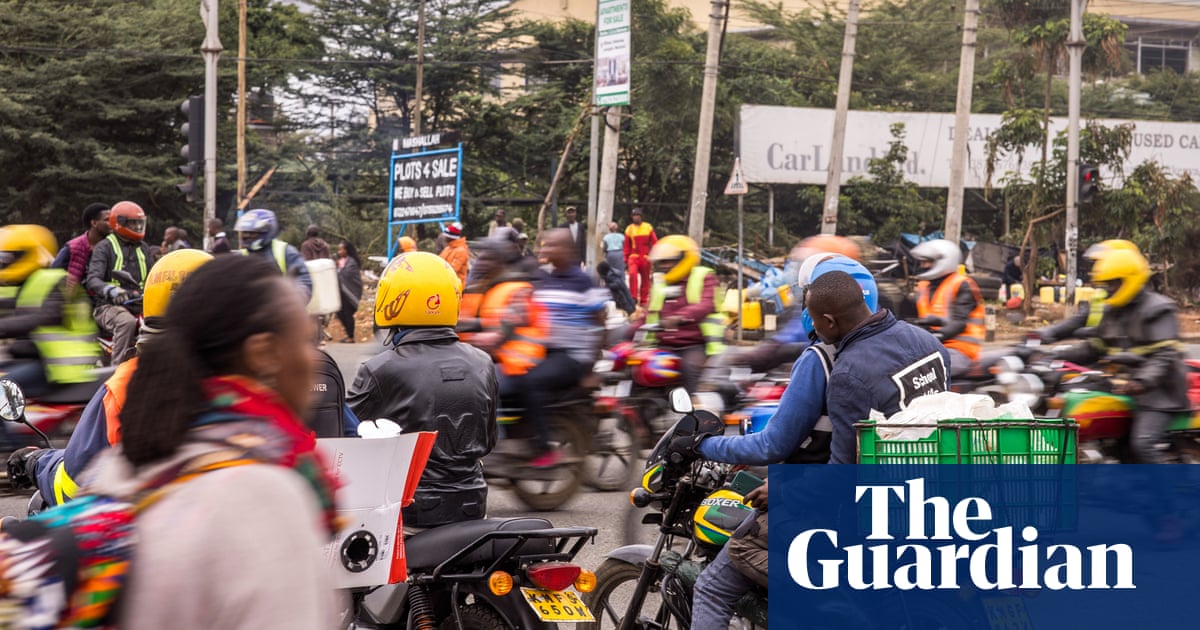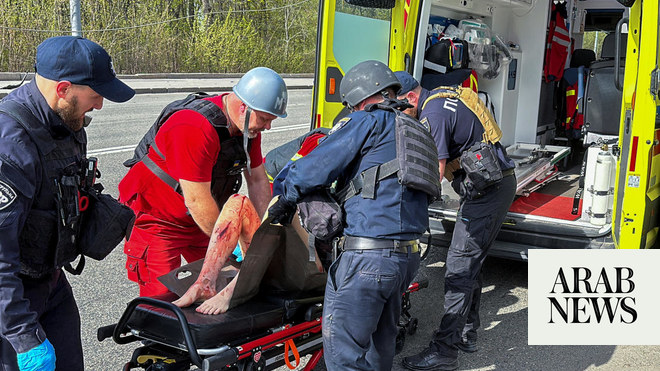
The number of people who died in traffic incidents in Africa rose by 17% in the past decade, despite global road traffic deaths falling by 5%, according to the World Health Organization.
The Road Safety report found that nearly one in five fatal traffic incidents across the world occurred in Africa. “Part of the reason for increased fatalities in Africa is the increase in the number of vehicles on the roads,” said Nhan Tran, leader of WHO’s safety and mobility unit and the lead author of the report. “People who were not able to afford a vehicle 10 or 20 years ago can now buy one. Africa has seen a big increase in motorisation, but the infrastructure to facilitate it is not there.”
Road traffic incidents are the ninth most common cause of death in Africa, according to the WHO.
Experts say a big increase in the number of motorbikes is partly to blame for the rise in road deaths. In eastern Africa, motorbike taxis – called boda boda, piki piki or moto – have become increasingly popular, filling the gaps in public transport.
“About 10 years ago we saw a big increase in motorcycles in Kenya, more motorcycles were being imported than cars,” said Gladys Nyachieo, a sociologist at the Multimedia University of Kenya, who researches mobility. “Very quickly we saw an increase in motorcycle-related accidents. Some hospitals opened dedicated wards for motorcycle-accident victims.”
“It’s just physics,” that motorbikes are more dangerous than cars, said Tran. “Drivers of a motorbike are more exposed than passengers in a car. If a car hits a motorbike driver, it can be quite similar to hitting a pedestrian.”
In Rwanda, motorbikes and bicycles accounted for most of the road traffic accidents in the first half of 2023, according to Rwandan police, and were responsible for 98 recorded deaths and 46 serious injuries.
Campaigners say many motorbike riders fail to wear effective helmets, putting them at greater risk. Many countries, including Rwanda and Kenya, legally require drivers and passengers to use them. While the compliance rate is close to 100% in Rwanda, in Kenya the law is not well enforced, with about 40% of drivers wearing them.
Yet the number of road traffic deaths in Rwanda remains high. “Helmets are required but they don’t have to meet any standards,” said Innocent Nzeyimana, director of Healthy People Rwanda, a public health charity advocating for road safety. “The helmets are mostly imported from India and China and there are no testing capabilities in Rwanda to make sure they meet any standards. Additionally, drivers will often reuse broken helmets after an accident.”
The charity found that some drivers were using helmets mended with staples, glue or tape. “A helmet like this is no better than papier-mache,” Nzeyimana said.
Road safety charity the FIA Foundation has committed to opening a helmet-testing centre in Rwanda in 2024. A commitment to establish a similar centre is also anticipated from the Kenyan government in the coming months, said the charity Transaid. “Without a testing centre, standards cannot be introduced or enforced,” said Nyachieo.
While poorly made helmets can be bought for $3, helmets with international safety certificates such as DOT or ECE can cost up to 10 times more. For motorcycle taxi drivers, who in Kenya earn $6.25 a day on average, even the cheapest helmet is a major expense.
“We can’t compete with cheap Indian helmets,” said Sandeep Radia, of Boda Plus, a Kenyan manufacturer of high-quality, safe helmets. “Our cheapest helmet is $4, a dollar more than an Indian one, but a boda boda driver will say: ‘Why should I spend that extra dollar?’”
Boda Plus was one of the first companies on the continent to manufacture helmets when it started two years ago. As well as in Kenya, its biggest customer bases are in Tanzania, Uganda and Congo.
“We have world-class facilities, our helmets are very good, but we’re struggling,” Radia said. “For consumers there is little to distinguish our helmets from ones that crack before your head hits the ground.”
“A domestic manufacturing sector is really the best option,” said Sam Clark from Transaid. “Once a testing centre is up and running we hope to see a reduction in flimsy imported helmets. Kenyan manufacturing industry needs to be ready to meet the demand.”
Elly Kegode is chairman of a boda drivers’ cooperative in Kibera, Nairobi, home to Kenya’s largest slum settlements. “I’ve seen many of my friends die; sometimes their children will come to my office asking for help,” he says. “It’s a sorrow we live with.”
Kegode set up the cooperative after he spent months in hospital following a collision. “I wasn’t wearing a helmet. I wanted to help others avoid my mistakes,” he said.
Working with Transaid, Kegode’s cooperative helps its drivers buy Boda Plus helmets at a discounted price. “We see a big difference,” he said. “Recently, one of our drivers was in a serious accident, but only had minor injuries due to the helmet.
“I’d like to see the government do something – subsidise safe helmets, or enforce safety regulations, anything to advocate for our safety,” he said.












